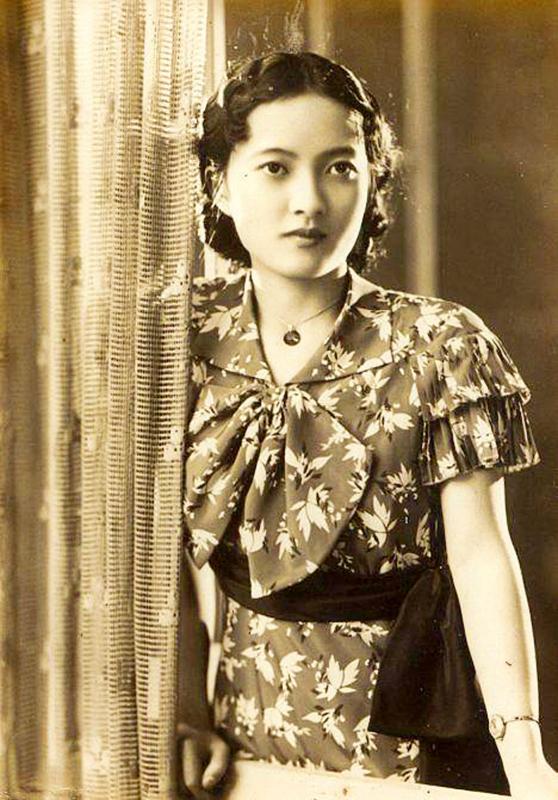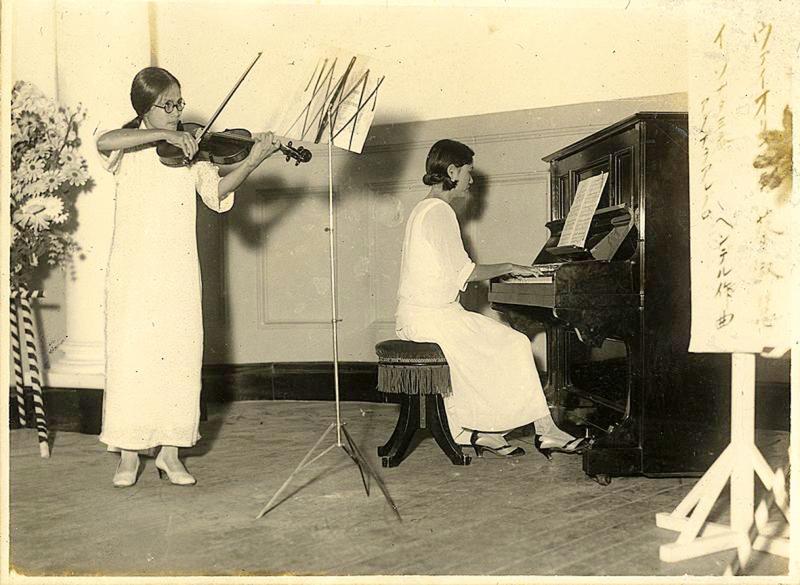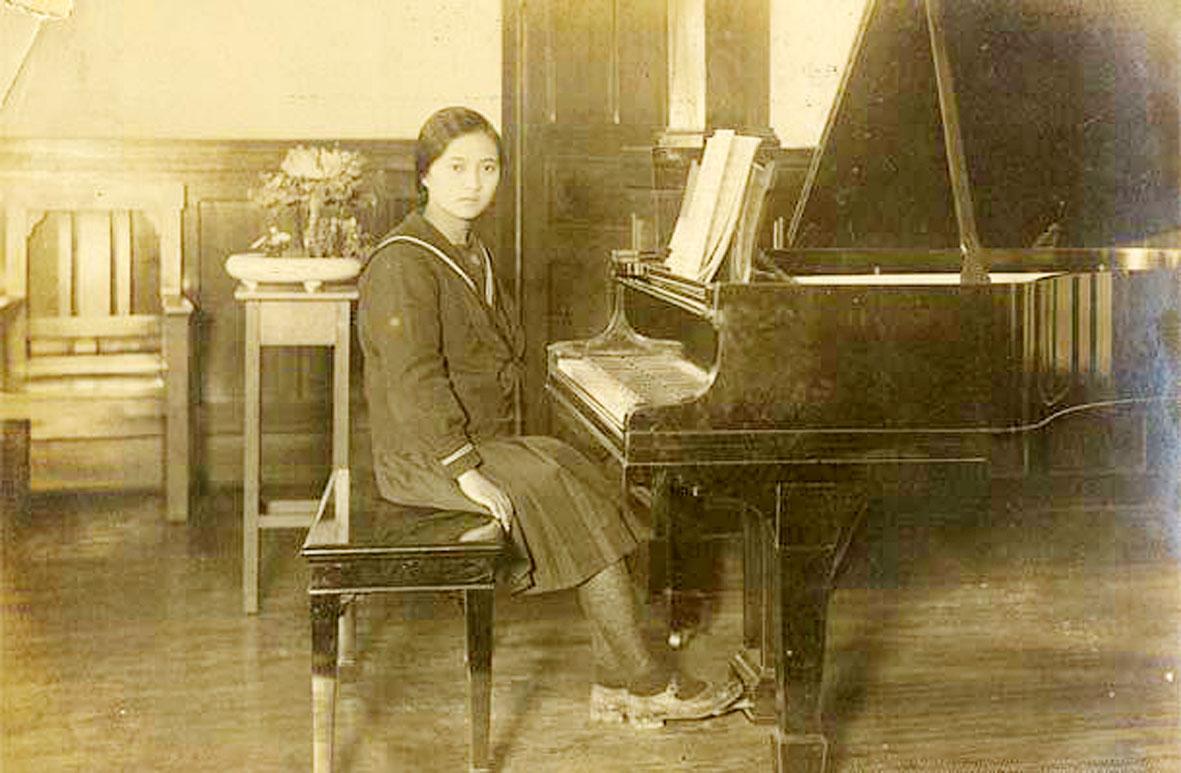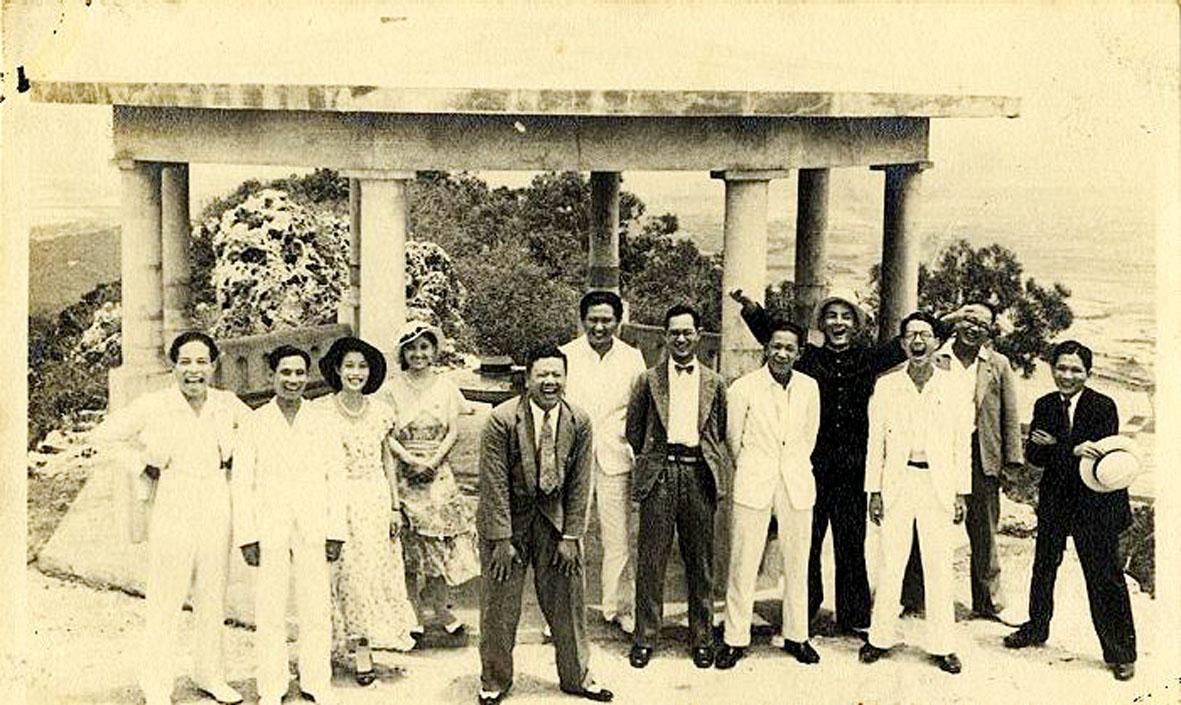Feb. 14 to FEB. 20
The first time pianist Kao Tzu-mei (高慈美) toured Taiwan, it was a cheerful occasion. In August 1934, Kao and other music students in Japan returned home and put on seven dazzling performances of Western music along the west coast to great fanfare.
But disaster struck the next year. In April 1935, the 7.1-magnitude Hsinchu-Taichung Earthquake left more than 3,000 dead, 11,000 wounded and the surrounding area and infrastructure heavily damaged.

Photo courtesy of Wikimedia Commons
Tsai Pei-huo (蔡培火), president of the Taiwan New Minpao (台灣新民報) newspaper, organized a series of charity concerts to help the victims and the rebuilding effort. Kao, 21, was one of several women in the ensemble, as well as one of four musicians to appear in all 37 shows during the seven-week tour.
Historian Chuang Yung-ming (莊永明) writes that Kao’s first tour only covered the west coast, but the second one went deep into the countryside, even hitting then-remote Taitung.
Kao married soon after and only taught private students while balancing domestic duties, but she began teaching in universities in 1948. She was promoted in August 1970 and became the nation’s first female professor of piano.

Photo courtesy of Wikimedia Commons
EARLY DIARIES
Kao was born on Feb. 17, 1914 to a prestigious family in today’s Gangshan (岡山) District in Kaohsiung. Her grandfather Kao Chang (高長) was the Presbyterian Church in Taiwan’s first convert and a local preacher; her father was a doctor and her mother the daughter of a doctor. Kao Tzu-mei was privileged enough to attend preschool in Japan, only returning home after the Great Kanto Earthquake of 1923.
Kao returned to Japan to further her studies in 1927, and after finishing high school, she enrolled in the Toyo Conservatory of Music (today’s Tokyo College of Music), studying under renowned pianist Koukichi Oida.

Photo courtesy of Wikimedia Commons
Kao kept a detailed diary between 1929 and 1932, which was published in four volumes in Japan; unfortunately there is no Chinese translation available. In addition to describing her studies and social life, she also mused about the condition of Taiwanese and how it felt to meet her compatriots in Japan.
The diary took a more reflective tone after she moved to Tokyo: “While undergoing rigorous musical training, Kao’s awareness of herself and as a musician grew,” writes researcher Lee Yi-ling (李依陵) in an Academia Sinica document. In the diary’s final year, she became engaged to Lee Chao-jan (李超然), great-grandson of the famed Dadaocheng tea merchant and philosopher Lee Chun-sheng (李春生). The marriage took place in 1937, uniting the two major Presbyterian families on both ends of the island.
“One could feel her uncertainty and hesitation about the future as an 18-year old who was still in school but also set to get married, as well as her confusion and desire toward freedom while caught between tradition and being a modern woman.”

Photo courtesy of Wikimedia Commons
EAGER TO HELP
In June 1934, the Taiwanese Association (台灣同鄉會) was formed in Tokyo. During the founding ceremony, political activist Yang Chao-chia (楊肇嘉) suggested that the music students go on tour of Taiwan. Chuang writes that it was the nation’s first Western music concert series.
In addition to Kao, the talented roster included future greats such as vocalist Lin Chiu-chin (林秋錦) and composers Chen Su-ti (陳泗治) and Chiang Wen-ye (江文也). Yang recalls in his memoir that it was a “valuable historic occasion that contributed to the artistic development of Taiwanese society.”
Kao briefly put her musical career on hold after her marriage, but eventually she began teaching and performing again, even returning to Japan to refine her techniques under a German professor in 1939.
In 1948, Tai Tsui-lun (戴粹倫), head of the music department at today’s National Taiwan Normal University, invited Kao to teach there. She also began teaching at today’s Fu Hsing Kang College in 1953.
Kao was active in high society; her husband founded the Taipei West District Rotary Club and they rubbed elbows with the nation’s elite as well as foreign dignitaries. She was reportedly an enthusiastic matchmaker.
Kao was known for her generosity toward less fortunate students, often helping out with their tuition and supporting them after they graduated and started teaching. The renowned music scholar Hsu Chang-hui (許常惠) was able to study abroad in France due to a scholarship provided by Kao and her friends.
She remained active after retiring in 1984, participating in Rotary Club activities and joining the Taipei Jen-Chi Relief Institution (仁濟院) as a director at the age of 80.
Kao died in 2004 and is remembered by her friends and family, as well as the National Taiwan Museum of History’s “Taiwanese Women” Web site — as the “blessed pianist,” as few women those days could enjoy both a vibrant private and public life in addition to a respected career.
Taiwan in Time, a column about Taiwan’s history that is published every Sunday, spotlights important or interesting events around the nation that either have anniversaries this week or are tied to current events.

Behind a car repair business on a nondescript Thai street are the cherished pets of a rising TikTok animal influencer: two lions and a 200-kilogram lion-tiger hybrid called “Big George.” Lion ownership is legal in Thailand, and Tharnuwarht Plengkemratch is an enthusiastic advocate, posting updates on his feline companions to nearly three million followers. “They’re playful and affectionate, just like dogs or cats,” he said from inside their cage complex at his home in the northern city of Chiang Mai. Thailand’s captive lion population has exploded in recent years, with nearly 500 registered in zoos, breeding farms, petting cafes and homes. Experts warn the

The unexpected collapse of the recall campaigns is being viewed through many lenses, most of them skewed and self-absorbed. The international media unsurprisingly focuses on what they perceive as the message that Taiwanese voters were sending in the failure of the mass recall, especially to China, the US and to friendly Western nations. This made some sense prior to early last month. One of the main arguments used by recall campaigners for recalling Chinese Nationalist Party (KMT) lawmakers was that they were too pro-China, and by extension not to be trusted with defending the nation. Also by extension, that argument could be

Aug. 4 to Aug. 10 When Coca-Cola finally pushed its way into Taiwan’s market in 1968, it allegedly vowed to wipe out its major domestic rival Hey Song within five years. But Hey Song, which began as a manual operation in a family cow shed in 1925, had proven its resilience, surviving numerous setbacks — including the loss of autonomy and nearly all its assets due to the Japanese colonial government’s wartime economic policy. By the 1960s, Hey Song had risen to the top of Taiwan’s beverage industry. This success was driven not only by president Chang Wen-chi’s

Last week, on the heels of the recall election that turned out so badly for Taiwan, came the news that US President Donald Trump had blocked the transit of President William Lai (賴清德) through the US on his way to Latin America. A few days later the international media reported that in June a scheduled visit by Minister of National Defense Wellington Koo (顧立雄) for high level meetings was canceled by the US after China’s President Xi Jinping (習近平) asked Trump to curb US engagement with Taiwan during a June phone call. The cancellation of Lai’s transit was a gaudy